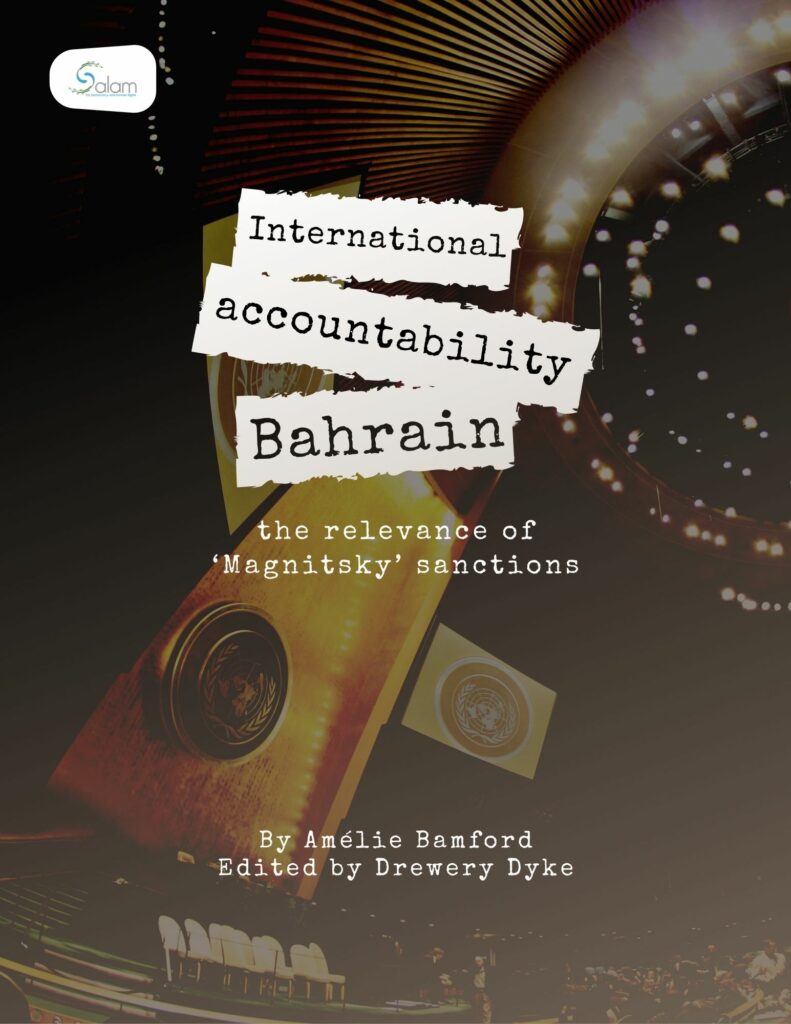By Amélie Bamford / Lancaster University; edited by Drewery Dyke
Download / ReadThe causes of the 2009 death in custody of Russian tax expert, Sergei Magnitsky formed the inspiration of an accountability campaign lead by financier Bill Browder. The United States’ (US) 2012 Magnitsky Act accorded to the executive the authority to restrict entry into the US, and access to services provided by US-registered entities to government-designated people or entities, on the basis of proven conduct which violated human rights norms.
The scope of application and the number of states – those of the EU, UK and Canada enacting Magnitsky-rooted legislation continues to grow as it appears to embody standards of governance commensurate with international human rights standards. Yet it remains a political tool rather than one operated by an independent body, able to weigh up all factors in the imposition of such targeted sanctions. And it does not provide justice or redress in the place where the alleged act took place. Such flaws notwithstanding, it has become a powerful and symbolic tool.
In light of the human rights crisis in Bahrain in 2011, and the promises made by the state-sanctioned commission formed to address the crisis; as well as events since then, are Magnitsky sanctions relevant to the Bahrain situation? Are there officials in the kingdom whose conduct, either in 2011 or since then, would meet the criteria for the imposition of such targeted sanctions? Would it make sense for such sanctions to be imposed?
Amélie Bamford’s paper, the result of an internship that the author carried out with Salam DHR, but which represents her work, examined alternatives and concluded that there is a case for Magnitsky sanctions to be imposed on Bahraini officials, in the absence of domestic action.
On 15 December, Salam for Democracy and Human Rights hosted a webinar entitled 10 Years Later – Accountability or Legitimacy (view it here).
Amélie Bamford, undertaking at the time of the event, postgraduate work in European Studies at Kings College, London set out her paper. Carla Ferstman, Professor in the School of Law at the UK’s Essex University, responded by pointing out that Magnitsky sanctions are part of a wider toolbox, one of a number of mechanisms designed to “obtain a measure of justice.” Speaking next, former Bahrain MP representing the largest constituency, the Northern Governorate – and 2011 detainee, Matar Ebrahim Ali Matar, now a political analyst and commentator who has worked with the US-based the Project on Middle East Democracy (POMED) acknowledged pre-2011 complaints were unsuccessful and suggested that failure to address these caused, in part the human rights crisis of 2011. But he said that the BICI was a partial success, highlighting that the (then) controversial sacking of medical professionals had been reversed. More than Magnitsky, Matar addressed the challenges facing the pro-democracy movement, notably by way of state structure: “the King is everything” he observed. French journalist Marc Pellas suggested that the key question was that of legitimacy. Pellas, who has worked at the intersection of mathematics and economics, has contributed to Le Monde Diplomatique investigative pieces on the Arabian Peninsula and Gulf geopolitics since 1973. Participants, including Tara O’Grady, discussed aiming for what could be done, calling for ongoing engagement. Matar suggested that a possible ‘win’ could be work on statelessness; Ferstman urged participants and the 500+ viewers that the UN human rights bodies remain a possible and workable avenue to seek redress and to change state conduct; all seemed to agree that progress pivots on political will.
Download / Read


 العربية
العربية Français
Français Deutsch
Deutsch